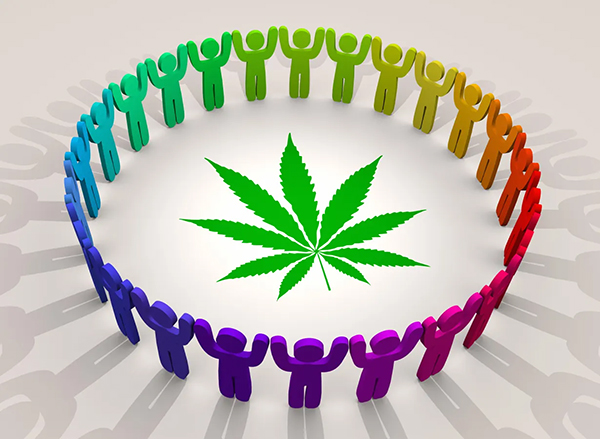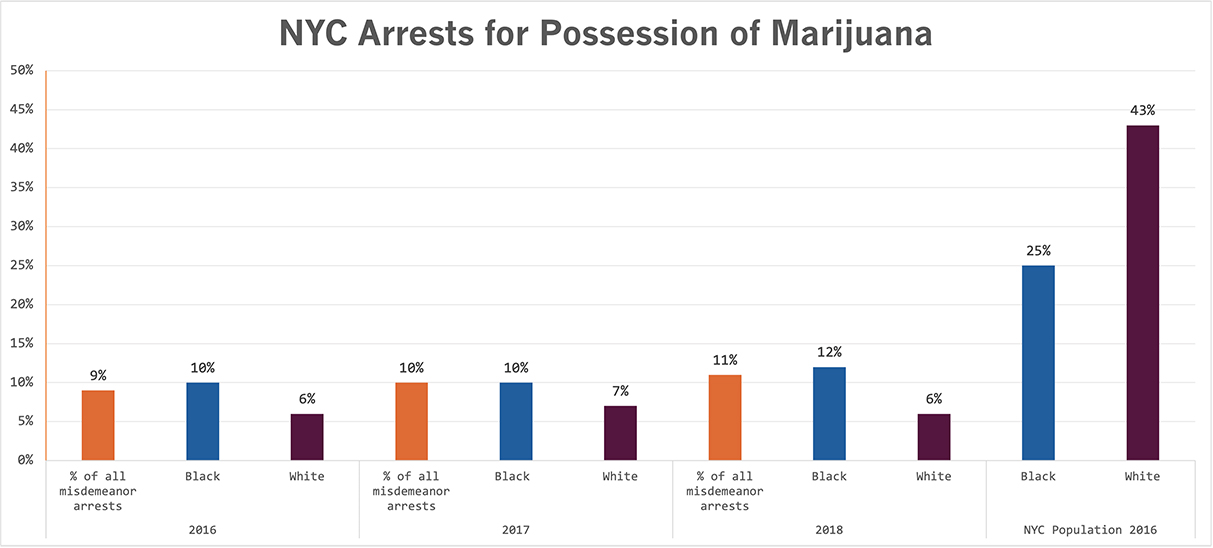Cannabis Industry and Social Equity in the US

Cannabis Industry and Social Equity in the US

While navigating the complicated terrain of legal marijuana, keep in mind that social equity issues intricately linked to past injustices exist beyond the legalization’s cloud.
Marijuana and social justice present important issues that call for careful consideration and constructive responses. The impact of marijuana on marginalized populations is a complex subject, ranging from systemic inequalities in legalization attempts to racial disparities in the cannabis sector.
The first step in promoting a more egalitarian future is acknowledging this complexity.
Historical Injustices and Marijuana Policies
Marijuana laws are shaped by historical injustices, which disproportionately affect certain communities. Racial prejudices had a significant impact on the 20th century’s criminalization of marijuana, which had disastrous effects on marginalized communities. Marijuana laws were frequently utilized to target and oppress minority communities, sustaining structural injustices that still have an impact on society today. Even while these strategies are being used similarly by diverse demographic groups, they have led to increased arrest rates for individuals of color.
Racial Disparities in the Cannabis Industry
The cannabis sector exhibits persistent racial inequities, which are a reflection of the ongoing issues marginalized people experience in gaining access to resources and opportunities. People of color still face obstacles to success and admittance into the marijuana sector, even with recent advancements in its legalization.
Comparatively speaking to their white counterparts, Black and Hispanic people are disproportionately underrepresented in ownership and leadership positions and experience greater rates of arrest and incarceration for cannabis-related offenses. This mismatch upholds structural disparities and feeds a vicious circle of economic hardship.
Social justice programs and initiatives that offer resources and support to underserved populations looking to participate in the cannabis market are among the efforts being made to address these discrepancies. To guarantee equal participation for all and level the playing field, further work is required.
How does cannabis arrest affect black and Hispanic people?

Black and Hispanic persons in the US have been disproportionately affected by the harmful effects of cannabis criminalization. The arrest rates for cannabis possession in the US are 2.6 times higher for Hispanic individuals and 3.6 times higher for Black individuals. NY is slightly better but still shows significant inequalities. These differences emphasize the necessity of fair laws and procedures to combat racial injustice.
Consequences of the cannabis arrest:
Even for first-time offenders, the repercussions of an arrest for cannabis possession can be severe and protracted. The following are some possible results:
Criminal Record: Getting convicted of possessing cannabis carries a criminal record, which can negatively impact one’s ability to find work in the future, travel, and other elements of daily life.
Penalties: Depending on the case's specifics, the court can impose fines on individuals convicted of possessing cannabis. These fines can range in severity.
If you’re facing charges for possessing cannabis, it’s critical to comprehend the legal ramifications and think about getting legal counsel.
Systemic Inequalities in Legalization Efforts
Restricted financial access for underprivileged groups.
Obstacles small businesses face while applying for licenses and permits.
Uneven application of marijuana regulations in various localities.
Minorities are underrepresented in industry leadership positions.
Getting people a second chance by clearing their prior marijuana-related offenses is not easy.
Equality of Social Standing in Cannabis Laws
How can we ensure social equity is a foundational principle in marijuana regulations?
Implementing regulations that prioritize inclusion and diversity in the cannabis sector is one important strategy. We can contribute to the redress of past injustices and the advancement of economic empowerment by providing opportunities for members of marginalized communities to engage in the judicial system.
To further help level the playing field, licenses should be reserved, or money should be given to individuals who have been disproportionately impacted by the war on drugs.
It is crucial to set clear criteria, monitor their success, and make necessary revisions to guarantee that equity initiatives are actually helping those who prior marijuana laws have most negatively impacted.
Impact of Cannabis on Marginalized Communities
For underprivileged neighborhoods, the cannabis sector has had a significant impact. Regarding the effects of cannabis on these populations, it is essential to take into account:
Inaccessible commercial prospects in the cannabis sector
Disparities in the rates of criminalization and incarceration The absence of female participation in industry leadership positions
Obtaining medical marijuana for therapy presents particular challenges.
The widespread distribution of the advantages of the cannabis industry exacerbates economic inequities.
To solve the injustices that underprivileged groups encounter in the cannabis industry, it is crucial to comprehend these elements. A more inclusive and fair industry for all can be achieved by recognizing these problems and taking proactive measures to address them.
Can Marijuana Legalization Help Address Historical Injustices Faced by Marginalized Communities?
Legalizing marijuana can help rectify past injustices experienced by underprivileged groups by fostering social justice and economic development. It gives individuals affected an opportunity to engage in a regulated industry.
How Can the Cannabis Industry Work Towards Reducing Racial Disparities in Hiring and Ownership?
The cannabis sector should priorities diverse recruitment, provide training programmes, and provide equal financial access in order to lessen racial gaps in employment and ownership. Promote tolerance, offer assistance, and cultivate a culture that celebrates variety.
What Specific Systemic Inequalities Hinder Social Equity Efforts in Marijuana Legalization?
Discriminatory laws, biased enforcement methods, and restricted resource availability for underprivileged groups are only a few of the systemic injustices impeding social equity initiatives related to marijuana legalization. To have a just and fair industry, these challenges must be addressed.
Are There Any Successful Examples of Addressing Social Equity in Marijuana Regulations in Other States or Countries?
Successful attempts to address socioeconomic fairness in marijuana policies have been made in various states and nations. Examine these role models to see how they have negotiated and implemented laws to create a more equal cannabis market.
How Can the Negative Impact of Cannabis on Marginalized Communities Be Mitigated Through Targeted Policies and Programs?
You must put in place specific regulations and initiatives if you want to lessen the detrimental effects of cannabis on underprivileged populations. You can effectively address these concerns by concentrating on fair access, education, job training, and investing in the affected areas.
Conclusion
Ensuring social equality in marijuana policy is an essential step in rectifying historical injustices and promoting a fair, inclusive, and sustainable cannabis industry.
Some steps, such as Bidens pardon for marijuana offenses, were a small step in the right direction. More needs to be done to fully expunge this offense from criminal records and ensure federal decriminalization opens the doors to brighter prospects for those negatively impacted by past criminalization.
By including and actively working with marginalized communities to develop social equality underpins legalization legislation, we can correct racial disparities and systemic inequalities of the past.
It is essential to keep advocating that all voices are heard in our discussions about future policies to achieve equal opportunities in the cannabis industry.





